How much can we do in a day? Part 2
24 Oct
Couple days ago I wrote a blog post on how much can we do in a day. The main point was that if we schedule lot of things, it will force us to cut off our unproductive activities and focus only on the relevant ones (I suggest you read it first if you have not read it yet). If you get into this habit, you are probably going to have more genuinely free time than you had before despite the fact you are getting more things done. This blog post is about what to do with all that free time and on what you can do with your time in general.
We were asked to write down how we would like to spend our time while at LSE at our introduction lecture couple weeks ago. I am now applying for consultancies so I used a framework I learned a long time ago from a great speaker and friend of mine called Houston Spencer, himself an ex-McKinsey consultant. It identifies four main areas you should devote your time to. These are:
1. Relationships – family, friends, girlfriend/boyfriend
2. Professional – work related activities
3. Body – sports, taking care of your health, appearance
4. Mind – reading, meditation, listening to relaxation music etc.
This is how Houston put it down:
Draw these on an x/y axis and then think what activities you want to do each of these areas. While your priorities might change depending on the stage of life you are in, you should take care to have at least something in every domain.
And here is a brief sketch I did in the lecture:
I would encourage you to be a lot more specific and spend some time doing this exercise. You might get some great insights. Here is how to do it:
1. Think how fulfilled you are in each area now.
2. What percentage of your time are you investing into each area now?
3. What percentage of your time do you want to be investing into each area in the future?
Closing thoughts
Did you see any correlation between your satisfaction with each area and your investment?
What are your goals for each area for now, in one year, five years from now?
What would you like your time investment mix to look like in the future? Is it realistic given the goals you set for yourself?

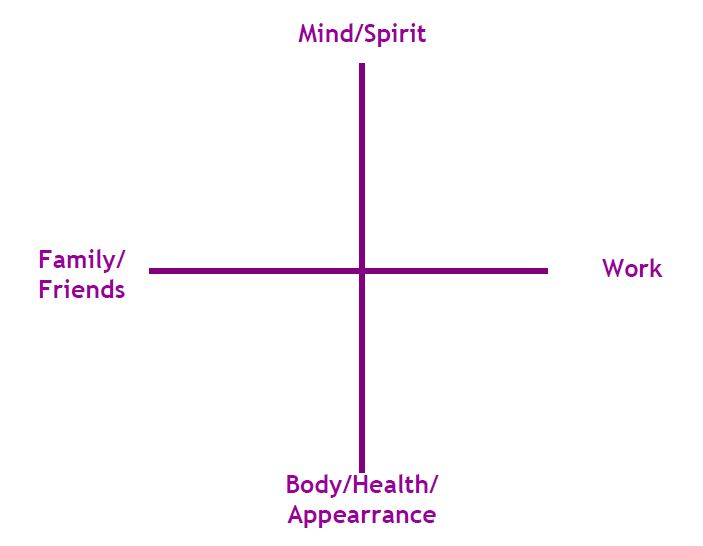
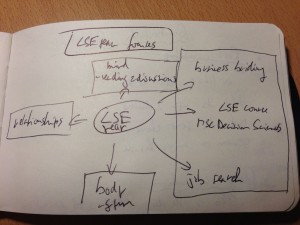
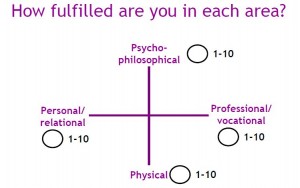
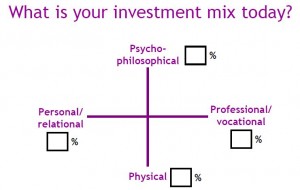
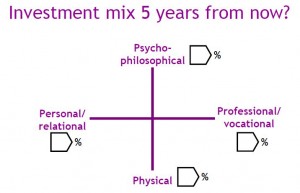

Recent Comments